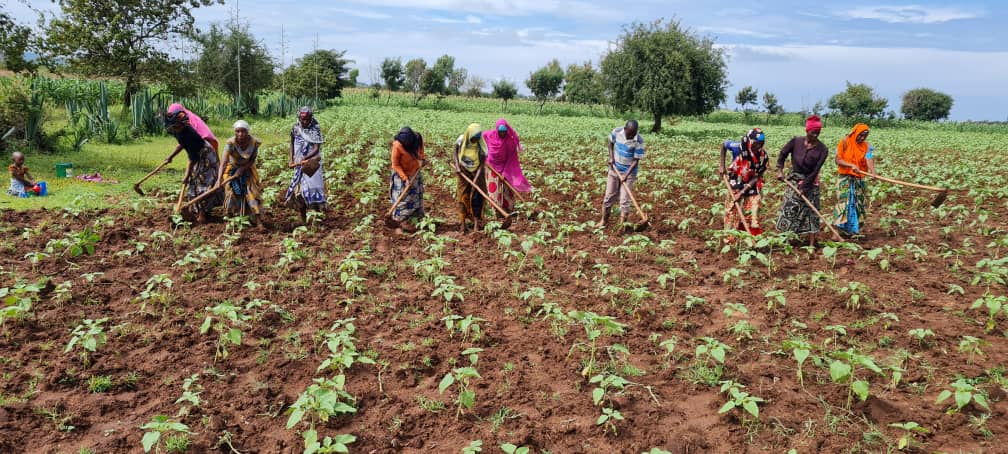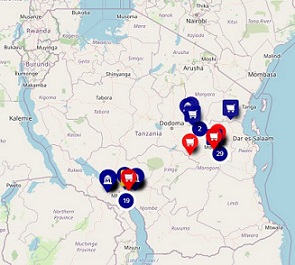Mtandao wa Vikundi vya Wakulima Tanzania (MVIWATA) for years since its establishment has implemented various activities in production with the objective of ensuring smallholder farmers have access and ownership of sustainable farming methods.
Recently, alongside a number of on-going production initiatives MVIWATA is implementing a sunflower production program in five districts of Kiteto (Manyara region) Singida rural, Iramba, Ikungi and Manyoni districts (Singida region. A total of 58 smallholder farmers groups (mainly women and youth groups) in 23 wards are engaged in this program.
MVIWATA bought sunflower seeds from Agriculture Seed Agency (ASA) a public enterprise, the seeds were supplied to smallholder farmers. A partnership with private enterprises and district, ward extension officers has also been effected. The overall objective of this designed interventions is to mobilize farmers into groups, provide organic sunflower production trainings through established demonstration plots, inputs, working animals (cows), ploughing, supervision, extension services, and later engage stakeholders to buy sunflower from farmers at premium price. MVIWATA has provided 400kg of Sunflower seeds that has been planted on 133 acres in the five districts.
Tanzania, currently imports about 60 percent of its cooking oil requirements at a cost of approximately $250 million USD per year. This can be eliminated through increased joint efforts in production of sunflower. With increasing demand of edible oil in the local, regional and global markets, sunflower that seems potentially to grow everywhere in Tanzania, can now emerge as a sustainably edible oil cash crop which can play a big role in rural poverty alleviation and economic development.
MVIWATA supports the government’s efforts to the sunflower sub-sector by which the government has been taking a number of efforts to improve productivity, such as through investing production of improved seed varieties, through the implementation of National Sunflower Oil Sector Development Strategy and Agriculture Sector Development Program number two (ASDP2) that aims to further intensify support to this sector.
Sunflower is mostly grown by smallholder farmers. Major sunflower producing regions in Tanzania are Singida, Dodoma, Manyara, Arusha, Tabora, Iringa, Njombe, Rukwa, Mbeya, Morogoro, Ruvuma, Kigoma and Katavi.
Tanzania produces sunflower oil seeds for raw materials in processing cholesterol-free edible cooking oil with a by-product being used as livestock feeds. Sunflower seeds and their oil are good sources of fat, protein, fibre and vitamins, as well as certain minerals. The oil content of the seed before hulling ranges from 28% to 42% and is well known for its high linoleic content, which provides low levels of saturated fats, a clear amber colour, long shelf life, a pleasant cooking odour and low refining losses. There are a number of varieties produced with a high oleic content, which is most notable where monounsaturated fat exceeds 80%.
Sunflower is among the five major oilseed crops in Tanzania. Others are sesame, groundnuts, palm and cotton oil. It is a very important crop to the livelihood of Tanzanians along the entire value chain. Current raw sunflower seed production is 3 million tons per annum, but the country has the potential to increase production to 10 million tons per annum.
With a devoted plan and collaboration with stakeholders in place, MVIWATA is determined to tackle key challenges including insect, pest, disease and vermin through extension officers, access to financial services through established SACCOS and VICOBA, access to market and market information through collaboration with private enterprises and control of high post-harvest loses in sunflower production.







